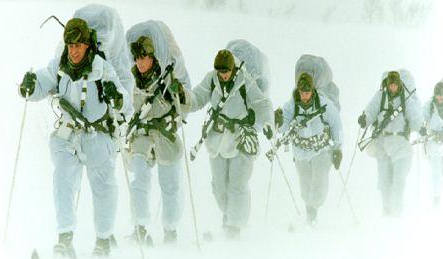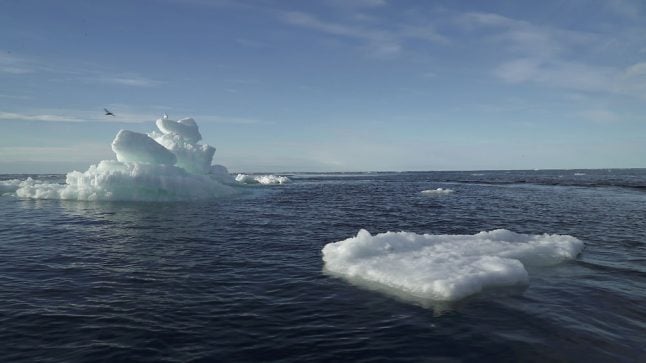
ARCTIC
Marines dismiss too cold claim as ‘nonsense’
The British officer charged with running the Royal Marines' winter training in Norway has dismissed as "a nonsense" claims that his troops are confined to barracks when temperatures get "too cold".
Published: 27 February 2014 16:48 CET

Soldiers training at the Allied Training Centre in Porsanger - Photo: Allied Training Centre, Porsanger
"We certainly don't stop training at -20, that's a nonsense," Colonel Dominic May, the commanding officer of the Royal Marines' Commando Logistics Regiment, told The Local, adding that he found the reports in the Norwegian press, The Local, and the UK's Daily Mail newspaper "slightly surprising".
Lieutenant Colonel Trond Thomassen, the commanding officer at the Allied Training Centre in Porsangmoen, was quoted in the Finnmarks Dagblad newspaper claiming that British troops tended to avoid training at his centre because the climate was too cold.
"The British have rules for health and safety," the paper quoted him as saying. "They would be sitting in the barracks, and receiving no training at all, whenever the mercury dropped below- 20."
According to Colonel May, Thomassen has denied making these comments, telling British officers that he had been misquoted.
"I know him very well and we've got a very good working relationship, and he knows that we routinely operate at below -30." May said.
However, he conceded that the Royal Marines' 3 Commando Brigade, for whom he organises training, did in fact have a "slight preference" for the Allied Training Centre at Harstad, several hundred kilometres to the south of Porsangmoen.
"That is a fair comment, but it has nothing to do with temperature," he said. "It's because there are certain advantages being close to the amphibious ships here at Harstad. It's got absolutely nothing to do with training temperature and environmental conditions as depicted in that article."
May said that officers running training exercises had the discretion to override temperature guidelines if they judged that their men were sufficiently experienced with cold weather warfare.
"In terms of temperature range, for training purposes there's a minus-30 limit," he said. "Training below -30 still continues but it's up to the commander to make a dynamic risk assessment."
He said that the coastal Arctic climate in Harstad was in some ways more difficult for soldiers than the climate in Porsangermoen, which is typically colder but dryer.
"In many expects the very changeable weather in Harstad is much more challenging," he said. "Everything can get wet and freeze very quickly."
He stressed that the British army nonetheless continued to train at Porsangmoen, with the elite Mountain Leaders unit spending time there every year since 2009.

Colonel Dominic May
Url copied to clipboard!


 Please whitelist us to continue reading.
Please whitelist us to continue reading.
Member comments